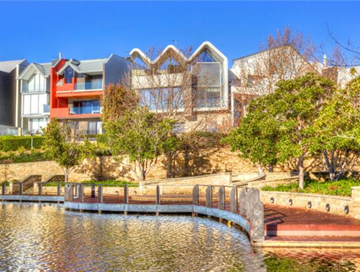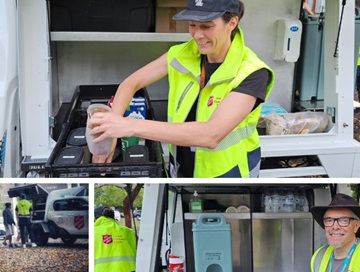Eastern States investors – read this before buying in WA
10 January 2024"To help your investment progress smoothly, REIWA’s Property Management Network Committee have shared their top tips for Eastern States investors."

WA has caught the eye of Eastern States investors, who are won over by our strong rental market, the prospect of good yields, and our relatively affordable housing.
With the Perth vacancy rate at 0.7 per cent and regional areas also experiencing very low vacancy rates, this interest is welcome, however investing outside your own state can be fraught with challenges.
To help your investment progress smoothly, REIWA’s Property Management Network Committee have the following tips for Eastern States investors:
Fees and charges
You can expect different fees and charges.
WA has some of the highest levels of legislative requirements in the country. As a result, the number of inspections may differ to what is required in the east and the level of property condition reporting may vary. You may find higher fee structures than you are used to.
As with other states, tenants can only be charged for rent and utilities usage. The owner is responsible for council rates and water service charges. However, while water usage is payable by the tenants, most property managers will pay it from the property owner’s account initially and then invoice the tenant.
Additional costs
Whether you’re in WA or another state, there are a range of legislative requirements around rental properties and you may face some initial costs to make sure your property is compliant.
For example, you may be required to upgrade your recently purchased property to ensure it meets rental standards for security and blind cords.
You may also have to carry out other minor upgrades to bring it up to a standard suitable for tenancy, such as repairing or replacing anything that is broken or doesn’t work.
You should request an electrical safety certificate as part of your offer contract. This will ensure you have the smoke alarms and RCD compliance aspect ticked before renting the property.
Legislation
Each state has its own residential tenancies legislation. Your WA investment will be subject to the Residential Tenancies Act 1987.
You can expect differences in notice periods, timeframes for how often you can increase the rent and the ending of tenancies, for example.
Our legislation has recently undergone a review and the Residential Tenancies Amendment Bill was put to Parliament at the end of 2023.
This covered:
Banning rent bidding
Limiting rent increases to once a year
Changes to the dispute resolution process
Pets in rental properties
Modifications to rental properties
Retaliatory action taken by lessor
Disposal of bonds
The changes to the legislation are expected to come into effect in 2024.
Repairs and maintenance
Like anywhere in Australia, general maintenance is the responsibility of the property owner. Tenants can be charged for repairs for damage they have caused.
Be aware that WA legislation requires you to respond to requests for urgent repairs within specific timeframes otherwise the tenant can arrange for the repairs to be carried out themselves and you will be required to reimburse them.
Maintenance delays are an issue for many tenants and property managers. For the benefit of your property and all parties involved, consider giving the property manager pre-approval to arrange maintenance and/or repairs up to a specified limit (for example, up to $500). This will help to avoid delays for incidental matters.
Broaden your lease horizons
Due to the ongoing low vacancy rate and rising cost of living and rent prices, more tenants are now looking at sharehouse-type arrangements. Consider accepting this type of tenancy if you have been averse to it previously.
Also consider pets – they are part of many families. If you refuse to allow pets you rule out a large part of the tenancy pool. You may not think that matters now while demand is so strong, but when the market changes you will want to appeal to as many tenants as possible. In addition, as mentioned earlier, upcoming changes to our legislation mean tenants will be allowed to have pets in most instances.
Remember that everyone needs a home and there is a house for everyone; discrimination in any way is illegal. Property managers will help you obtain the best tenant for the property based on their objective assessment and insights.
Make sure you are covered
Your property is a significant financial investment and having insurance is essential.
This includes landlord insurance – make sure your policy includes rent default.
You will also need building insurance (unless your property is in a strata complex in which case it would usually be covered by the Body Corp’s building insurance) and, as building insurance does not always cover contents, take out separate contents insurance. Tenants are responsible for insuring their own contents, but you will need to be covered for those fittings and fixtures that are considered contents – depending on the policy, this may include carpets, blinds, curtains and some appliances. If you have a property that is provided fully furnished, contents insurance is a must.
Go local with your property manager
It is extremely difficult to manage a property when you are thousands of kilometres away, so it is essential to engage the services of a REIWA property manager. They know the WA market and legislation best and, while the fee structure may be higher than over east, it is worth every cent.
Using a local property manager is more convenient for you - you don’t want to have to fly to WA to deal with an issue or spend hours on the phone or email trying to arrange repairs (particularly with the time difference).
In addition, it could save you money – you don’t want to face a hefty fine from the Department of Energy, Mines, Industry Regulation and Safety because you failed to comply with a piece of WA legislation you didn’t know about. Not knowing is not a defence.
WA property managers are also highly educated. They are legally required to carry out a specified amount of professional development every year. Check whether your property manager is also REIWA Accredited. This means they have undertaken additional professional development above and beyond the regulatory requirements for the real estate industry.
Use a REIWA buyer’s agent to find your investment property
Like local property managers, buyer’s agents know the nuances of the WA property market and the legislation better than someone based over east. A successful investment is not about buying the cheapest property out there and they will help you find an investment property at the right price and in good condition, that will appeal to tenants, and in an area likely to see capital growth over time.
If you are buying sight unseen, it is vital you have someone on the ground acting for you. Remember the selling agent champions the seller, a buyer’s agent acts for you. You want someone on your side who can view the property, check out the neighbourhood and look into any potential local developments that may benefit or harm your investment.
You can find REIWA property managers and buyer’s agents on www.reiwa.com.


.tmb-rcarousel.jpg?sfvrsn=b4b9111_1)



.tmb-rcarousel.jpg?sfvrsn=d38b03f0_1)


